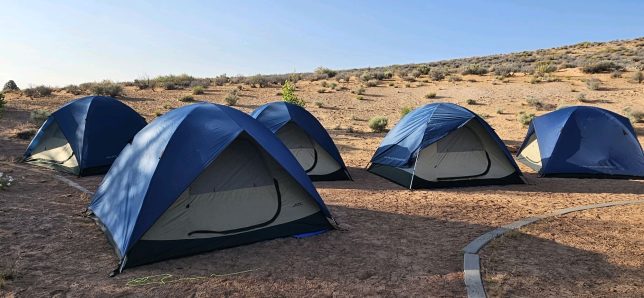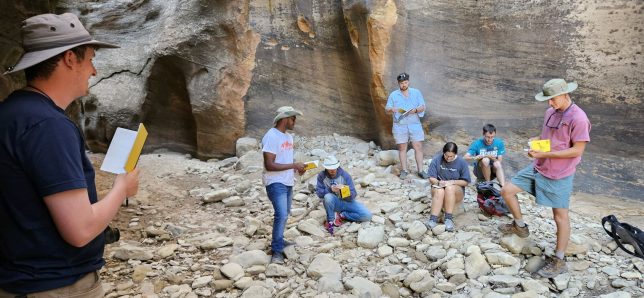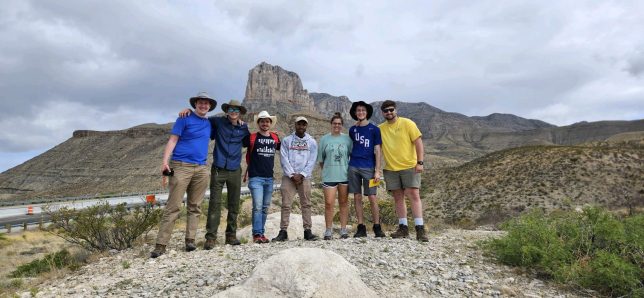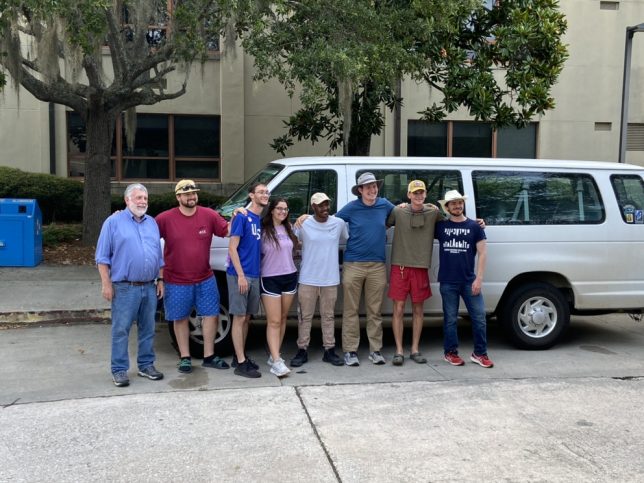Since 2003, Dr. Mark Groszos, Associate Professor of Geosciences, has coordinated the logistics for GEOL 3120, spending over 100 hours planning each year for the trip. From the driving route to overnight accommodations, there are many details that have to be finalized prior to embarking on the trip. Groszos believes the hands-on experience students gain in the field makes it worth the effort because when the students “see things firsthand, up close, things click into place.”.
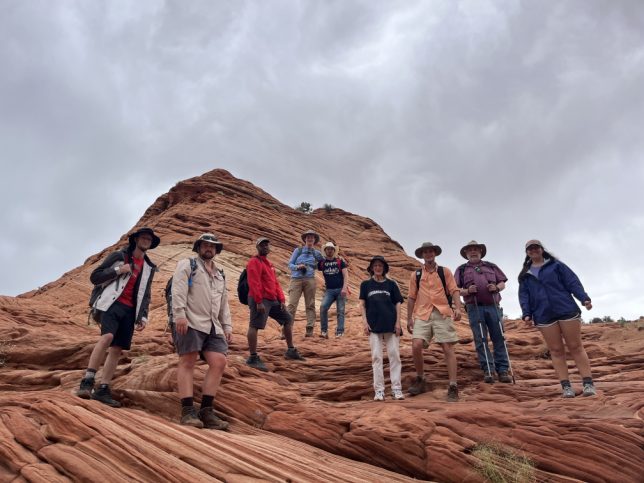
Previous years have taken them to locations as far as North Dakota and Yellowstone National Park, and overall, they are able to avoid most of the crowds since the trip is held in May before the summer tourist season.
They also avoid the more popular areas and instead select lesser-visited locations. Over 150 students have participated in this course since it was first offered, experiencing geologic areas that aren’t found in southern Georgia, such as volcanics and caves. This year’s destinations included some of the most well-known national and state parks in New Mexico, Colorado, Utah, Nevada, and Arizona including Zion National Park and the Grand Canyon, among many others.
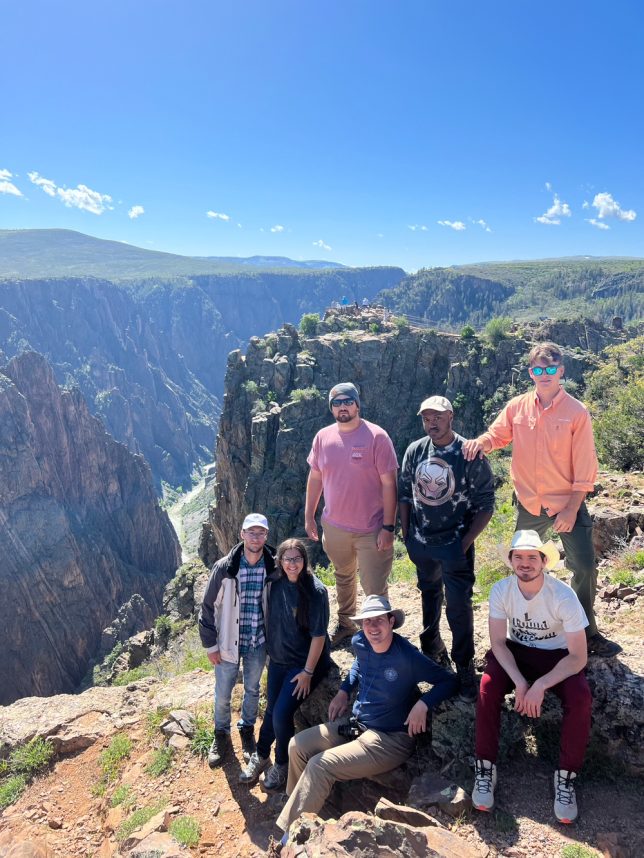
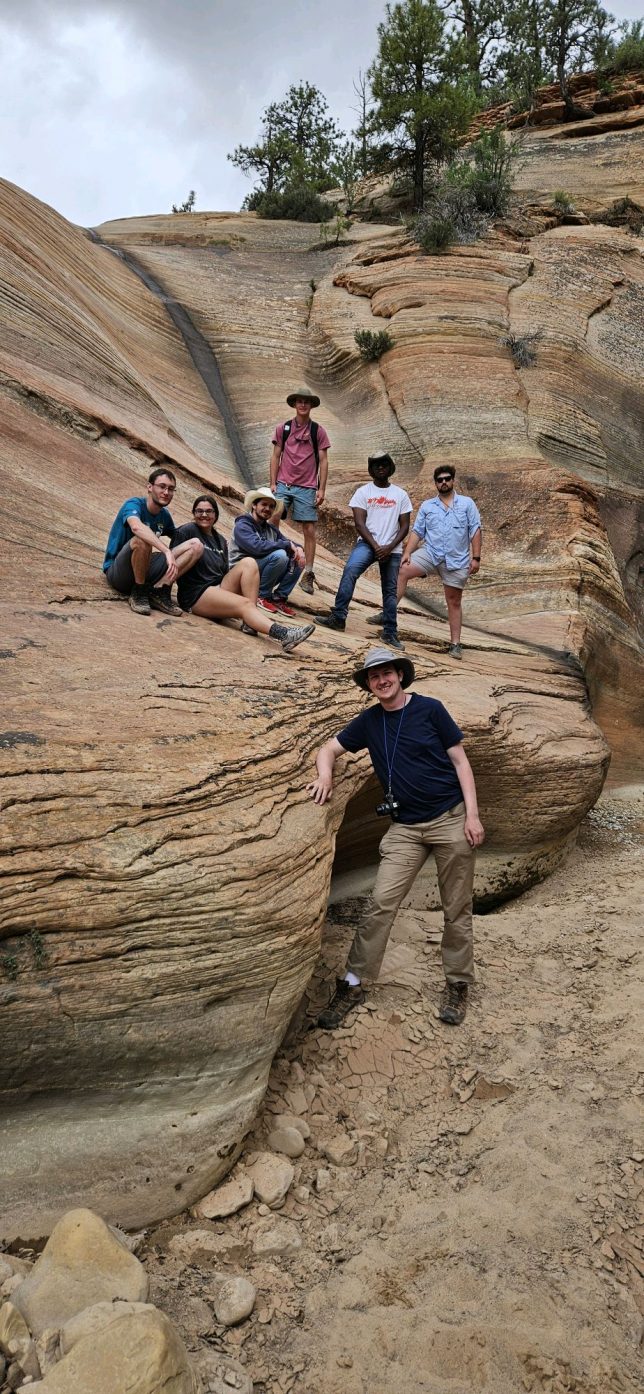
Prior to leaving their classroom in Nevins Hall and heading west, students research the areas they will be visiting and then once on-site at their destination, students give oral presentations on-site about that particular location. And as for living in the field? Dr. Groszos said some students have never set up a tent before, much less slept in one. After a long day of travel across Texas and arriving at the campsite after dark, one of his favorite things to see is the look of wonder the students have that first morning waking up in Van Horn, Texas surrounded by mountains, a favorite memory shared by 2021 VState graduate Ben Singletary. Ben works as a GIS specialist at the South Georgia Regional Commission and says his favorite memory of the 2019 trip was “driving through the western portion of Texas, reason being that it is the first time I had ever seen mountains before.”.
Michael Williams, an environmental geosciences major, participated in this year’s field trip and decided to take the course because he had never traveled to the western United States and was interested to see the geology of the area. He was able to apply what he learned in the classroom at VState by identifying minerals, volcanoes, and landforms in the field. Regarding the program, Williams says “I like the Environmental Geosciences program because it is interesting to learn about the earth and its processes, then we get to see them in real life.”.
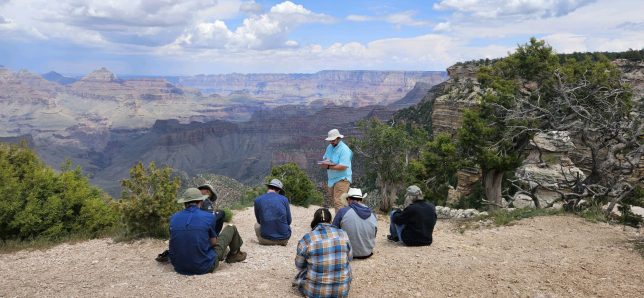
The value of classroom knowledge and being able to apply it in the field is echoed by Dr. Groszos who says the bottom line is that “the more rocks you see, the better you are.”
For more information regarding the Geosciences program, check out https://www.valdosta.edu/chemistry-geosciences/geosciences/.
